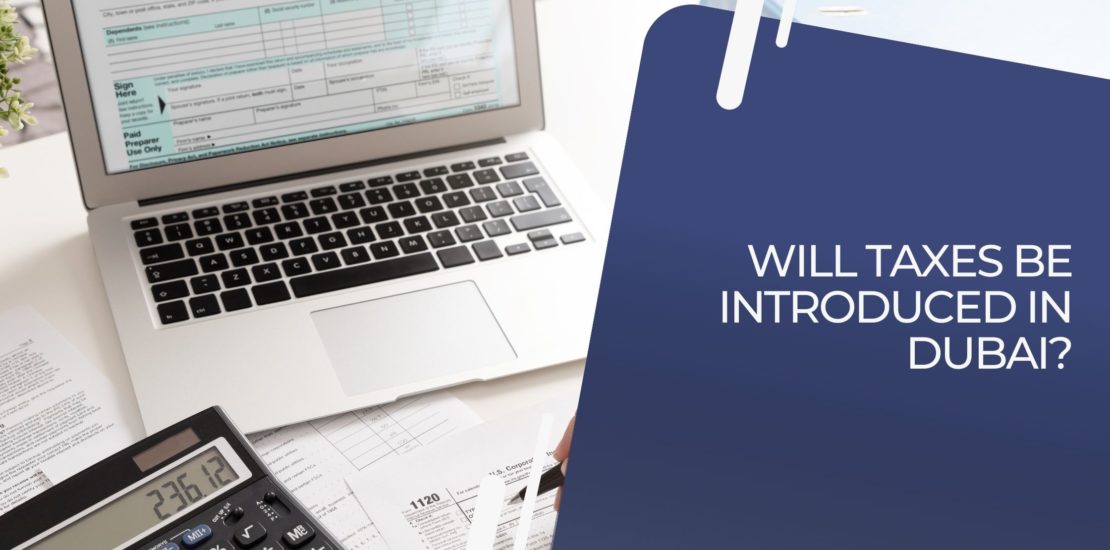- June 13, 2021
- Posted by: Philip Smith
- Category: News/Blog

Will Taxes Be Introduced In Dubai?
There is an old proverb that says that “taxes grow without rain”. Perhaps this will be true even in the desert?! Earlier this year, it was announced by the Ministry of Finance that the UAE were drafting proposals for the implementation of corporate and value-added taxes and that this was to be concluded “very soon, within the third quarter of this year [2015].” These were the words of Younis Haji al-Khouri, under-secretary at the Ministry.
This issue has been covered by many of the newspapers in the Gulf region over the last few years and it has resurfaced again in recent months. It is not a new debate but has been a much-hyped topic, both in Dubai and internationally, for the best part of a decade. And for obvious reasons. Dubai has always been a safe-haven for international investment and its tax-free status has attracted millions of companies and expats in an effort to avoid high levels of taxation found overseas. The possibility of a tax introduction in Dubai has caused worry amongst many people in Dubai.
Having set up my own company here (Your POA – Dubai) fairly recently, I too must admit that is does raise an element of concern to me on both a business and personal level. The advantage of a tax-free environment was one of the major reasons why it was commercially viable for me to do so here in Dubai.There is no detailed information on what the changes in law may be or what rate of tax may be introduced, if it does indeed proceed. In the real estate market in which I work, rumours circulate of potential tax rates of anything from 3-12%; although the lower end of the scale seems more likely (initially anyway). Nothing has been finalised yet so it is difficult to calculate the effect it may have on those living and working in Dubai and the UAE.
So Why Would Tax Be Introduced?
The idea of introducing some sort of tax has been toyed with for a number of years, not just in the UAE but by the whole Gulf Cooperation Council (GCC countries – Bahrain, Kuwait, Oman, Qatar, Saudi Arabia & UAE).
The reasoning behind this seems to be an effort to lessen the dependence on oil and find other ways to increase revenue. GCC countries rely heavily on oil for national revenue which leaves them at the mercy of potential price swings. This is certainly the case now.
In my previous article on the Dubai property market (“The Dubai Property Market: What is Happening?”https://yourpoadubai.com/the-dubai-property-market-what-is-happening/), I explained how the drop in oil prices was affecting the real estate sector in Dubai. This drop in oil prices over the last 12 months has also impacted on the economy of GCC countries. On this basis, the emphasis has shifted slightly and the authorities appear to be looking for other sources of income, especially as they are increasingly keen to push economic growth in the lead up to the much anticipated (and equally expensive) Expo 2020. In many countries worldwide, taxation has proved to be effective as an alternative revenue stream, albeit to the frustration of many of its citizens. If the oil prices remain low or perhaps drop further, this is likely to only add to the support for the introduction of some kind of tax in the UAE. This could however lead to some serious consequences if it is not managed correctly.
Effects Of Tax Introduction?
Negatives?
It is common knowledge that many companies and individuals come to Dubai due to its tax-free status. The introduction of corporate and/or VAT may however force these people to reconsider. This is particularly true for companies who come here rather than expats who also come to experience good weather and better way of life.
It is extremely important that Dubai remains an attractive proposition for international businesses and foreign investment. Much of this is what has brought the country to where it is today. It is suggested by many that if (corporate) taxes are implemented, this will lead to many business leaving the region and a significant drop in new foreign investment. This would be a huge blow to the economy.
On this basis, it could be argued that the introduction of VAT or sales tax would be the better of the two options – or perhaps better put – the lesser evil in terms of potential consequences of introducing new tax laws.
Indeed, many of the foreign companies here are registered in Freezones which means they already have agreements in place in relation to corporate taxes. Therefore any introduction of a corporate tax is likely to affect locally owned businesses. This may cause a serious problem politically as well as economically for the UAE, unless locals are exempt from any taxation.
It has been argued that the introduction of VAT on products or services is the more likely approach to be taken by the authorities. This may however still lead to an increase in prices in Dubai that could ultimately hinder the growth of the economy if less people visit or move here.
Also, if this is applied to property sales/purchases/rental incomes, this could also be a major issue. Many owners and investors are already frustrated by the increase in registration/transfers from 2% to 4% by Dubai Land Department in late 2013. There is also the added threat of this increasing again to 8% so any tax introduction will not be well received and could hinder investment even further. Property prices have significantly dropped in Dubai over the last 12 months so increased costs will only make matters worse. Landlords will also be aggrieved if they are required to pay taxes on (falling) rental yields, especially when service charges/maintenance payments seem to be increasing annually.
Positives?
There are arguments that introducing taxes may be of some benefit to the region given that this has proved to be the case in many other overseas states. Perhaps introducing some sort of tax, especially on a lower level, would not necessarily have everyone running to the airport afterall?
Hussain Sajwani, CEO of Damac Properties, has been quoted as saying, “we live in a world where everywhere there is tax. Singapore has taxes. Hong Kong has taxes. Are they failing?
“Dubai has to spend hugely on infrastructure. So, if the government decides to impose VAT and some corporation tax, this is normal. It needs the money. We live in a world-class city, a very safe city with fantastic infrastructure, and the people who enjoy those things say, ‘We don’t want to pay for it.’ Come on, you’ve got to pay.”
This view is perhaps a controversial one but may hold some merit, especially due to the falling oil prices and continued push for growth. Perhaps introducing taxes would be a viable option to help fund the economy and increase infrastructure ahead of the Expo 2020? Afterall, isn’t the Expo 2020 expected to benefit the nation and everyone in it? Not everyone would agree with this but it is simply a counter-argument that can be put forward against the argument that the introduction of taxes will encourage everyone to leave Dubai forever.
So Will It Actually Happen?
Possibly – but not by the third quarter of this year. It will take months, if not years, for this to be adopted by the UAE and the GCC nations as a whole. It is a huge decision for this region and one that they must get right, in terms of the timescales, type of tax and levels of tax involved.
It is unlikely to be introduced unless all GCC countries are in agreement and this will take some time. If it is not introduced simultaneously, this could lead to bigger problems of smuggling of untaxed goods between neighbouring countries leading to further economic losses.
From my understanding, a draft VAT law is still pending and discussions are ongoing. In my view, some sort of tax is likely to come into affect at some point, perhaps on a low level initially. I would anticipate this being VAT or sales tax first rather than the perhaps more controversial corporate taxation. I am not an expert on this by any means but it seems to me that this will be an easier pill to swallow if the authorities are insistent on introducing some sort of tax in the UAE.
All of this remains to be seen as of yet and these are just the views of one (slightly concerned) individual business owner who is currently proud to call Dubai “home”.
[NB the author of the above article is an LLB Bachelor of Laws graduate from the UK and is the Managing Partner of Your POA – Dubai (www.yourpoadubai.com). Your POA specialise in representing national and international clients as Power of Attorney in Dubai for a wide range of property related matters; from Property Handovers from Developers and Title Deed Registrations to Sales and Purchases. If you need a Power of Attorney or have questions on any property related matters in Dubai, please email philip@yourpoadubai.com or call Philip on +971 52 832 7420]

